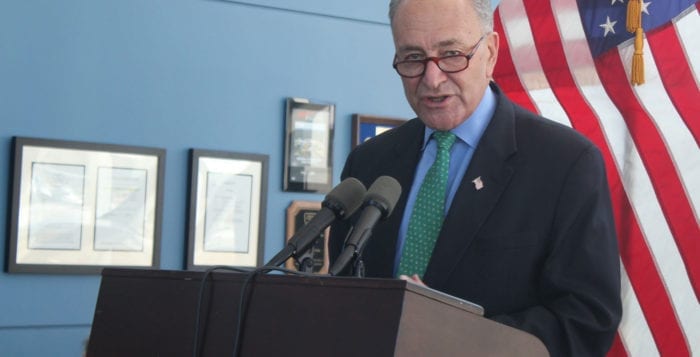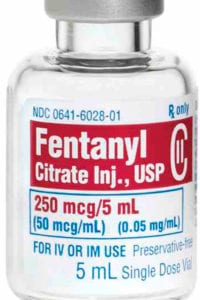Three candidates are currently in the race to become Suffolk County sheriff this November. State Sen. Phil Boyle (R-East Islip), career law enforcer Larry Zacarese (R), Boyle’s Republican primary challenger, and retired New York City police officer Dan Caroleo (D) are each hoping to inherit the position held for 12 years by Vincent DeMarco (R), who announced in May his decision not to seek a fourth term. He declined to comment on his decision.
Boyle, 55, of Bay Shore, who was elected to the New York Senate in November 2012 after serving 16 years as a state assemblyman, was endorsed for sheriff by the Suffolk Conservative Party in March and was backed by both the Republican and Independent parties soon after.
If elected, Boyle, a stepfather of two, said he wants to run the sheriff’s office in the most cost-effective manner possible, promote people based on merit rather than politics and halt the rise of drug overdoses and gang violence. He recently co-sponsored a bill to ban the sale of machetes to minors, the weapon of choice for MS-13 gang members.
The senator, who chaired and helped create the state Senate’s Joint Task Force on Heroin and Opioid Addiction in 2013 to stamp out the growing drug problem, pointed to his active involvement pushing law enforcement issues in Albany as significant qualifiers.
Under the task force, 18 hearings were held across the state, which led to 11 prevention, treatment and enforcement measures passed by the Legislature and signed into law by Gov. Andrew Cuomo (D).
When it comes to immigration issues, Boyle said he disagrees with how DeMarco has run the jail.
“I work closely with federal immigration agents to make sure any individuals housed in the Suffolk County jail that agents may want to interact with due to immigration status have access to that,” Boyle said. “DeMarco, for a while, made the jail a sanctuary jail, in my opinion, and I’m definitely not going to allow that to happen.”
Zacarese, 43, of Kings Park, who is currently the assistant chief of the Stony Brook University police, said he’s looking forward to the primary. Zacarese and his “army of volunteers” are currently gathering 2,000 signatures in order to run. Confident he’s not just another choice, but the better choice, for the top law enforcement job, Zacarese outlined his 25-year law enforcement career.
He started as a Holbrook volunteer fireman at 17, went to paramedic school, then began to work in the NYPD as a patrol officer, canine handler and tactical paramedic. He became a sergeant, then deputy chief fire instructor at the Suffolk County Fire Academy and an adjunct lecturer at John Jay College of Criminal Justice and Stony Brook University.
For four years, while working at Stony Brook by day, Zacarese pursued his shelved passion, attending law school by night. He is currently admitted to practice law in the state.
“My wife tells me I’m the biggest underachiever she knows,” the father of four said, laughing. “I’ve worked really hard rounding out all of the areas that are pertinent to the office of sheriff, which is much more than just the person who oversees the correctional facilities.”
He said, if elected, his main priority is the opioid crisis.
“We really need to take a better look at the prevention and collaboration between addiction programs and not-for-profits, as well as how we can influence treatment while people are being incarcerated,” he said. “It’s about [providing] help while they’re in jail so when they return to their communities, they have started on the path to recovery.”
Suffolk County Democratic Committee Chairman Richard Schaffer, campaign manager for Caroleo, 62, of North Babylon, who was unavailable for comment, said the former New York City police officer, director of security at the North Babylon School District and current member of the district’s school board has, “a wealth of experience, he’s well-rounded and I think he can work cooperatively with, and continue, what County Executive Steve Bellone (D), Suffolk County Police Commissioner Tim Sini, and DeMarco have laid out — making sure we continue to drive down jail population.”
According to Schaffer, “Caroleo feels he has a great deal of public safety experience” that he could bring to the sheriff’s department.












